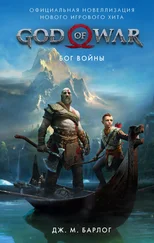Robert Vardeman - God of War
Здесь есть возможность читать онлайн «Robert Vardeman - God of War» весь текст электронной книги совершенно бесплатно (целиком полную версию без сокращений). В некоторых случаях можно слушать аудио, скачать через торрент в формате fb2 и присутствует краткое содержание. Жанр: Фэнтези, на английском языке. Описание произведения, (предисловие) а так же отзывы посетителей доступны на портале библиотеки ЛибКат.
- Название:God of War
- Автор:
- Жанр:
- Год:неизвестен
- ISBN:нет данных
- Рейтинг книги:3 / 5. Голосов: 1
-
Избранное:Добавить в избранное
- Отзывы:
-
Ваша оценка:
- 60
- 1
- 2
- 3
- 4
- 5
God of War: краткое содержание, описание и аннотация
Предлагаем к чтению аннотацию, описание, краткое содержание или предисловие (зависит от того, что написал сам автор книги «God of War»). Если вы не нашли необходимую информацию о книге — напишите в комментариях, мы постараемся отыскать её.
God of War — читать онлайн бесплатно полную книгу (весь текст) целиком
Ниже представлен текст книги, разбитый по страницам. Система сохранения места последней прочитанной страницы, позволяет с удобством читать онлайн бесплатно книгу «God of War», без необходимости каждый раз заново искать на чём Вы остановились. Поставьте закладку, и сможете в любой момент перейти на страницу, на которой закончили чтение.
Интервал:
Закладка:
Kratos grimly drew the Blades of Chaos without slackening his pace. Another senseless delay. He’d make better time off the streets.
The three Minotaurs spread out to bar his path, but a headlong sprint faster than the gallop of a racing horse gave Kratos the momentum he needed. A dozen strides short of the monsters,
Kratos hurled one Blade of Chaos high, where it whipped over the lip of the nearest balcony. The chain snapped tight and yanked him into the air, over the heads of the astonished Minotaurs. He flipped the other blade at a higher balcony and in this fashion swung himself all the way up to the rooftops.
From here, he could clearly see the Parthenon and beyond it the sky-spanning figure of the God of War, who still hurled handfuls of fiery slag into the city below.
Even that momentary pause was enough for Ares’s minions to locate him again. Flocks of harpies swooped toward his rooftop, wraiths floated through nearby walls, and the building trembled as Minotaurs and Cyclopes scaled its walls.
“Ares!” Kratos roared his challenge, brandishing the undying fire of the Blades of Chaos.
The mountain of war god swiveled eyes like bloody full moons in his direction. Behind his beard of flames, Ares’s lip curled in a cruel smile as he raised a burning hand high enough to scorch the clouds. He hurled a ball of fire larger than the entire building on which Kratos stood. As the blazing missile seemed to expand with alarming speed, Kratos had an instant to wonder if perhaps overweening pride had made him hasty in attracting the war god’s attention.
He gave a mighty leap out from among the crowd of his enemies, reached a wall of a taller building nearby, and kicked off again, hurtling high over a broad plaza. He struck a great broken pillar and clung to it for an instant, glancing back at the rooftop from whence he’d come. What he saw gave him pause.
The whole building was a mass of flame; harpies screeched, Cyclopes howled, and Minotaurs bellowed as they burned. Then it was his turn to cry out as a gobbet of the gelatinous fire ran the length of his back. His grip slackened, and he slipped down and then tumbled to the street in agony. Twisting from side to side, trying to roll as if mere flames devoured his flesh, did no good.
More flame roared toward him, and the plaza below filled with monsters. With supreme effort, teeth clenched against the never-ending burning on his back, Kratos hurled himself onward. Toward the Parthenon. Toward the Temple of Athena. Pain could never slow the Ghost of Sparta. He stumbled on, toward the Oracle-and the secret of killing a god.
KRATOS RAN WHEN HE COULD, the pain abating somewhat in his back, and killed when he had to; he stumbled through the streets, over the rooftops, and even waded the labyrinthine sewers connecting endless catacombs. Although the sewage burned worse than he thought he could endure without dying, by the time Kratos emerged, Ares’s touch on his back had diminished. The skin felt taut-crisp. But he could still move, still fight when he had to. Finally, after what felt like days, he reached the broad avenue leading up the Acropolis to the Parthenon-and there he faced a new challenge.
The roadway was patrolled by Centaurs. Wild and untamable, these gigantic man-horse monstrosities had a reputation for fierceness in battle that Kratos already knew was well founded. He had faced these creatures before and always found them formidable opponents.
But they never lived long. None who faced the Ghost of Sparta ever did.
The one nearest spotted him through the smoke. Bellowing its war cry, it reared and spun to face him, then without hesitation it charged.
Kratos widened his stance and waited.
Hooves pounding, the Centaur raced directly for him. Kratos realized he could not outrun the creature, not with the skin on his back cracking and giving new torment with every movement. He judged the distance and then dodged at the last possible instant. Like all four-legged animals, shifting to the side during attack was impossible, once committed. Kratos let the man-horse race past. Unlike other four-legged animals, however, the Centaur possessed the ability to swing its upper body about.
And this one did. Spear stabbing, it almost impaled Kratos. Only a quick parry with his blade prevented a vicious stab wound to Kratos’s side.
The man-horse tried to dig in its hind hooves to stop so it could rear and twist about, but Centaurs could not turn to face the opposite direction of attack quickly. Kratos used this to his advantage. He attacked while the Centaur’s weight pinned its rear hooves to the ground. If it had tried to kick him like a mule, Kratos’s attack would have failed.
He arched up over the man-horse’s back, Blades of Chaos swinging in wide circles of death. Either of the swords would have killed the Centaur. His right blade burrowed deep into the neck, while his left raked along the man-horse’s side and streamed sundered guts out onto the city square.
Kratos lost his balance, slipped in the Centaur’s blood, and fell heavily atop the corpse. For long minutes he could only lie in the puddle. He forced himself to his feet and stretched after recovering a bit of his usual power, though his movement was restricted by the skin taut as a drum’s head on his back. He surveyed the area. It was as he feared: Ares had infiltrated many of his army into the city. Two more Centaurs galloped to attack him.
One Centaur held a huge spear tucked like a lance under its corded arm; the other swung an iron weight at the end of a long chain. As they bore down on him, Kratos dropped low. The chain and ball swung harmlessly over his head, but the spear stung his forearm-only the chain embedded in flesh and bonded to bone saved him from losing the hand. But even the powerful impact of the slash did not slow his counterstrike. If he had been whole, if his muscles and powerful back had responded as they should, his aim would have been perfect. Instead, he missed and the Centaur flashed past, unscathed by his blades. Kneeling like a penitent, he whipped the Blades of Chaos out to his sides, backhanded, and sheared through the nearside front leg of each Centaur. The beasts fell forward and skidded along, leaving bloody smears on the pavement. Kratos stood and, with one more flick of the blades, slashed their heads from their bodies.
He shook the gore from his blades as he looked about for new enemies-new victims-but found only flames and carnage. Fires sprouted like unholy weeds, devouring the city.
He started back up the road to the Parthenon, each step stronger than the one before. The Blades of Chaos, in taking life, nourished him and allowed regeneration. Stiffness remained in his back as a reminder of the foolhardiness of taunting a god. Kratos used his blades at times as walking sticks to help him up the increasingly steep road. The soldier had said Athena’s oracle was in a temple near the majestic structure, which now stood blackened with soot and lit by the burning city below.
Kratos heard a rising-whistle sound he knew too well. In an eyeblink, he had thrown himself into a headlong dive that cleared a low wall one instant before another of the god’s fireballs splashed liquid flame throughout the neighborhood. A wave of fire broke over him, and he ran deeper into the courtyard, seeking cover under the tiled eaves. One touch of such anguish was all he could endure. He found a half-full fountain choked with weeds. He leaped into it and rolled in the damply rotting muck. The stagnant water smelled of dead fish, but it smothered the last of the burning gel that had clung to his skin.
“By the gods,” he said, gritting his teeth as a final wave of pain passed through him. Then he stood and knew he could fight on. For honor, for Athena-and because it was all he knew.
Читать дальшеИнтервал:
Закладка:
Похожие книги на «God of War»
Представляем Вашему вниманию похожие книги на «God of War» списком для выбора. Мы отобрали схожую по названию и смыслу литературу в надежде предоставить читателям больше вариантов отыскать новые, интересные, ещё непрочитанные произведения.
Обсуждение, отзывы о книге «God of War» и просто собственные мнения читателей. Оставьте ваши комментарии, напишите, что Вы думаете о произведении, его смысле или главных героях. Укажите что конкретно понравилось, а что нет, и почему Вы так считаете.
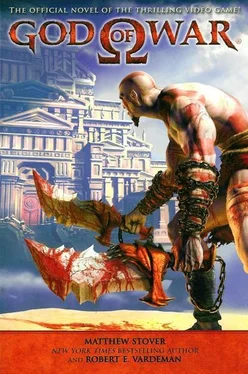



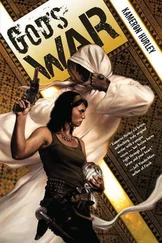


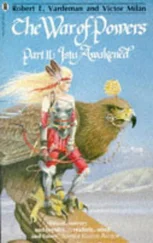

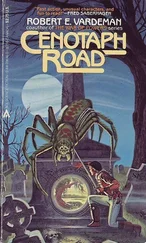
![Дж. М Барлог - God of War. Бог войны [Официальная новеллизация] [litres]](/books/413051/dzh-m-barlog-god-of-war-bog-vojny-oficialnaya-no-thumb.webp)

